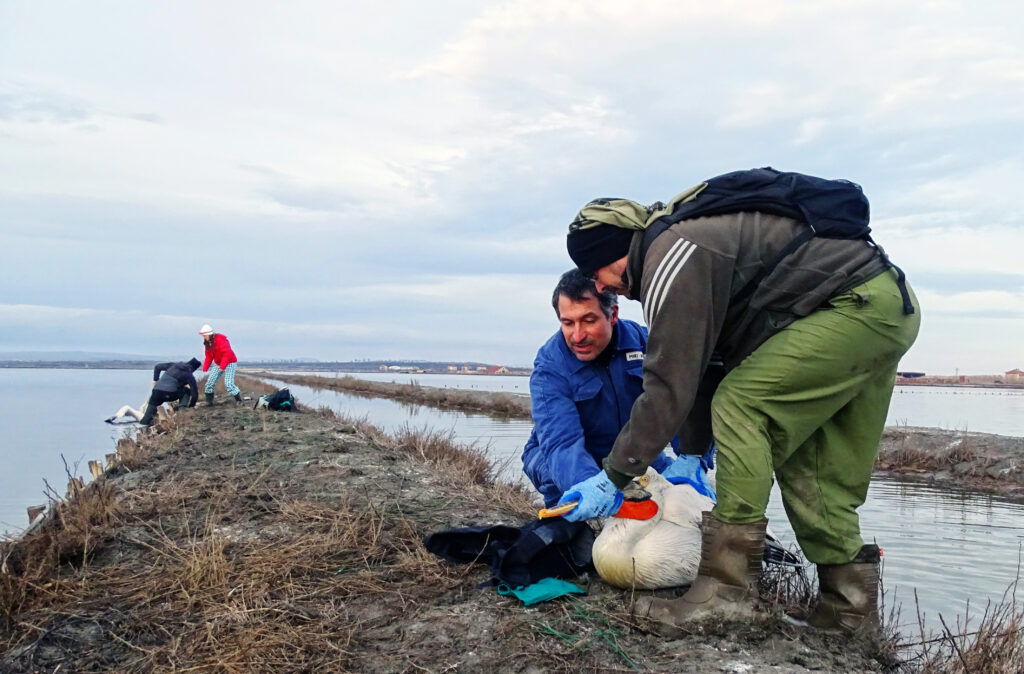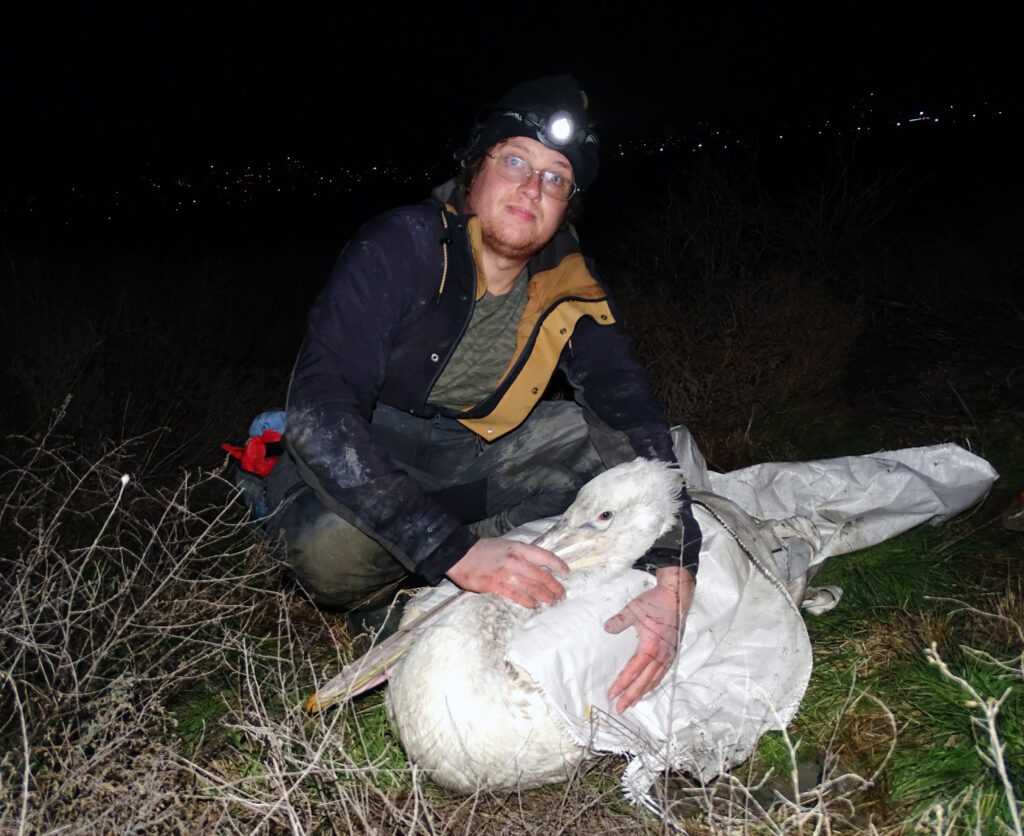In the last days of January, a team of experts from the Bulgarian Society for the Protection of Birds (BSPB) trapped and ringed with color rings tree Dalmatian pelicans in Atanasovsko Lake, near the city of Burgas. This is the first successful trapping of healthy and flying birds in Bulgaria.

The team successfully trapped and ringed one young and two adult (male and female) Dalmatian pelicans. The colored rings are white with black symbols. This new color scheme for ringing the species was approved by the Pelican Specialist Group and launched last year as part of the LIFE project “Pelican Way of LIFE”, funded by the LIFE programme of the European Commission. Within this project, more birds will be ringed and tagged with satellite transmitters. The transmitters will provide important information needed for the conservation activities for the species – the places where the pelicans congregate, feed, and roost, their movements, as well as the threats and causes of mortality.
The Dalmatian Pelican is an endangered species listed in the Red Data Book of the Republic of Bulgaria. In the country, the species nests in Lake Srebarna and in Persina Nature Park. The Burgas Lakes region is one of the most important sites in Europe for migratory and wintering Dalmatian pelicans, and during the monitoring in December 2020, the BSPB team established a record of 910 individuals for the country.
Trapping wild Dalmatian pelicans is an extremely labor-intensive and expert activity. For this purpose, the team uses special methods and traps that are safe for birds. The trapping is carried out by a team with the necessary professional experience and permits for the activity from the Ministry of Environment and Water.

The conservation activities of the Dalmatian Pelican are carried out within the framework of the international project “Conservation of the Dalmatian pelican along the Black-Sea Mediterranean Flyway ” (LIFE18/NAT/NL/000716), funded by the LIFE programme of the European Commission. Rewilding Europe coordinates the project, and the other partners, apart from BSPB, are the Persina Nature Park Directorate, the Romanian Ornithological Society (SOR), the Hellenic Ornithological Society (HOS), Rewilding Ukraine, and Rewilding Danube Delta.